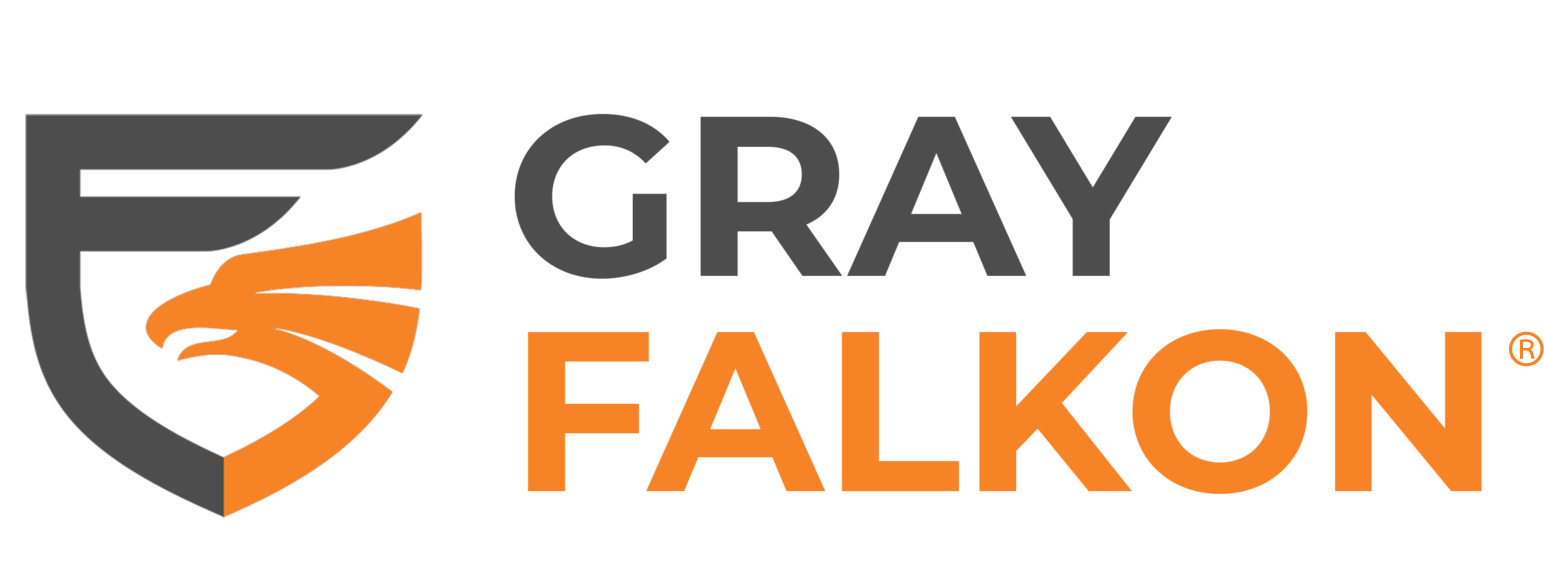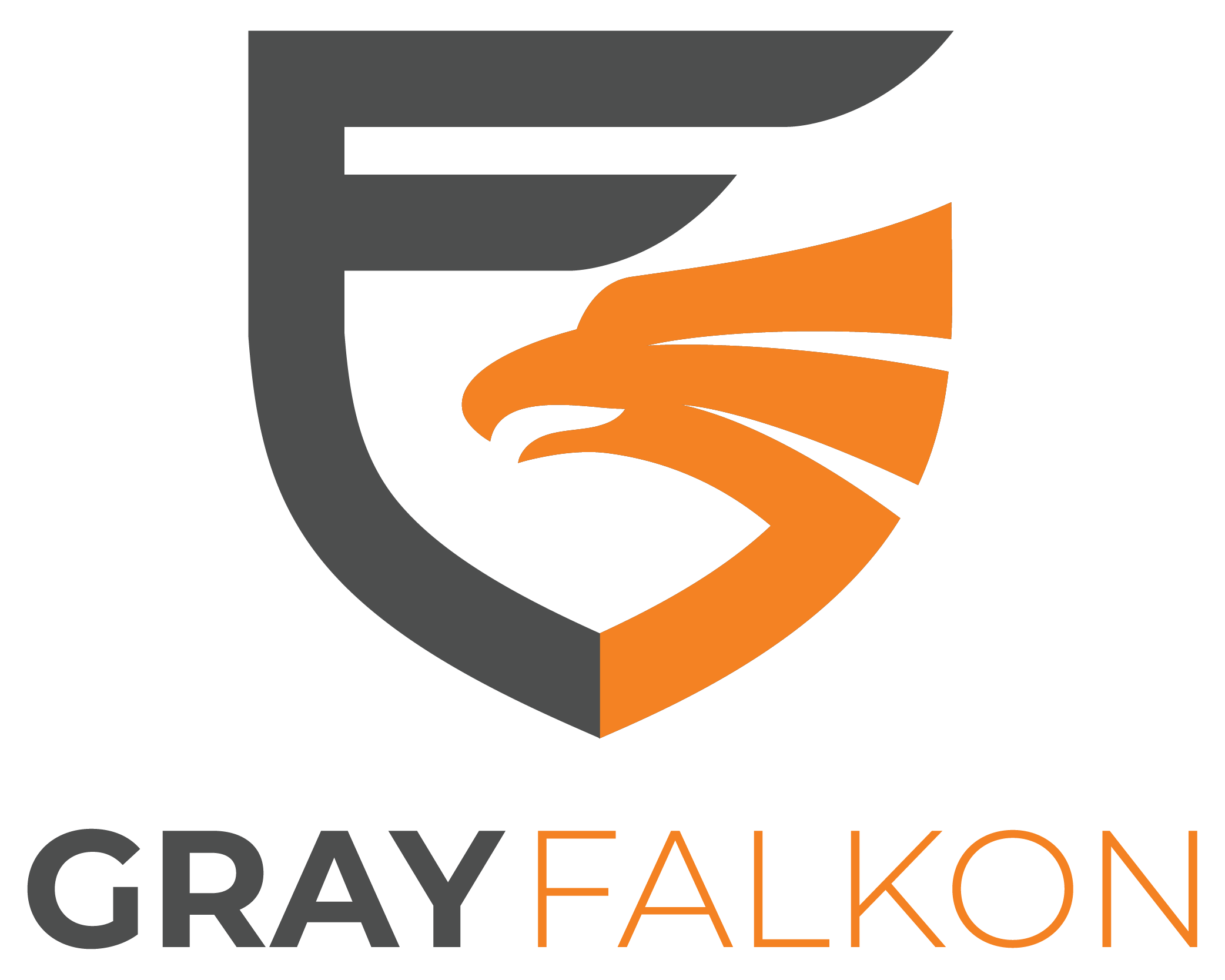
In the crazy and fast paced world of eCommerce, protecting a brand’s reputation and product integrity has never been more crucial. 2023 witnessed significant advancements in this arena, particularly in combating unauthorized resellers who can damage a brand’s image and consumer trust. As online marketplaces continue to expand, the need for robust brand protection technologies becomes increasingly evident. This blog will explore the challenges faced in 2023, highlight the pioneering role of Gray Falkon in deploying AI and automation for brand protection, and look ahead to the future of brand security in eCommerce as we move into 2024.
Challenges in Brand Protection in 2023
2023 marked a pivotal year in eCommerce brand protection, with businesses facing an array of challenges:
Rise of Unauthorized Resellers: One of the most daunting challenges faced in 2023 was the significant increase in unauthorized resellers across eCommerce platforms. These entities often operated in a gray market area, where authenticity and legality were dubious. They would:
- Sell Counterfeit Products: Many unauthorized resellers distributed counterfeit items, which not only infringed upon intellectual property rights but also potentially harmed consumers with inferior quality.
- Undercut Authorized Sellers: By offering products at significantly lower prices, these resellers unfairly competed with authorized sellers, leading to price wars that could devalue the brand and hurt the overall market.
- Exploit Loopholes in Marketplaces: These resellers adeptly exploited loopholes in marketplace policies, making it challenging for brands and platforms to effectively monitor and take action against them.
- Damage Brand Image and Customer Experience: The presence of unauthorized resellers led to inconsistent customer experiences and diluted brand value, as consumers often associated the negative experiences with the brand itself, not the unauthorized seller.
Complexities in Monitoring: With the expanse of online marketplaces, monitoring and identifying unauthorized sellers became increasingly complex. Brands struggled to keep up with the sheer volume of listings across multiple platforms.
- Vastness of Online Platforms: Brands faced the daunting task of monitoring their products across multitude online platforms, each with its own set of policies and seller dynamics.
- Rapidly Changing Listings: Unauthorized sellers often used tactics like frequently changing product listings, making it difficult for brands to track and identify violations consistently.
Impact on Consumer Trust: Unauthorized sales led to customer dissatisfaction due to inconsistent product quality and experience. This not only affected immediate sales but also long-term brand loyalty.
- Confusion and Mistrust: Consumers encountering varied pricing and product quality often attributed these inconsistencies to the brand, leading to confusion and a decrease in trust.
- Brand Reputation Damage: Negative experiences with unauthorized sellers often resulted in poor reviews and social media backlash, directly impacting the brand’s reputation and customer loyalty.
Legal and Compliance Hurdles: Navigating the legal landscape to take action against unauthorized sellers presented its own set of challenges, often requiring significant time and resources.
- Navigating Intellectual Property Laws: Brands faced the challenge of understanding and navigating complex intellectual property laws in different jurisdictions to protect their products.
- Enforcement Difficulties: Even when unauthorized sellers were identified, taking legal action was often a lengthy and resource-intensive process, with varying degrees of success.
These challenges highlighted the urgent need for innovative solutions in brand protection, setting the stage for companies like Gray Falkon to lead the way with advanced technology.
Our Role in Brand Protection
In response to the challenges of 2023, Gray Falkon emerged as a leader in brand protection within the eCommerce landscape. Our approach combined cutting-edge technology with strategic action to combat unauthorized resellers effectively:
Leveraging AI and Automation: Our proprietary AI technology is pivotal in identifying and combating illegitimate sellers. Gray Falkon’s technology efficiently monitors thousands of online listings, detecting unauthorized sellers, and takes action on behalf of our customers.
Dedicated Brand Success Strategist: We provide a unique approach by offering a Dedicated Brand Success Strategist. This role is pivotal in collaborating with clients to develop a strategic eCommerce plan, tailored to each brand’s specific needs. The strategist assists in the development and execution of a comprehensive campaign. This ensures a holistic approach to brand protection, from planning to execution.
Data-Driven Insights: Our reporting provides crucial analytics, offering brands insights into where and how their products were being sold without authorization. This information is key to developing targeted strategies to protect the brand.
Comprehensive Brand Protection: Beyond just identifying unauthorized sellers, our robust solution recovers lost sales and cleans up digital shelf space. This holistic approach not only identifies threats but also takes concrete steps to mitigate them.
Emerging Technologies and Trends in Brand Protection
As brands grappled with the challenges of unauthorized resellers in 2023, emerging technologies and trends started reshaping the landscape of brand protection:
Blockchain for Authentication: Blockchain technology gained traction for its ability to provide secure and transparent product authentication, helping brands and consumers verify product legitimacy.
Advanced Machine Learning Algorithms: The use of sophisticated machine learning algorithms became more prevalent. These algorithms helped in analyzing large datasets to identify patterns and anomalies associated with unauthorized selling activities.
Social Media Monitoring Tools: With the rise of social commerce, social media monitoring tools became crucial in detecting and addressing brand infringements on these platforms.
Collaborative Efforts with eCommerce Platforms: There was an increased emphasis on collaboration between brands and eCommerce platforms to jointly combat unauthorized selling, and sharing data and insights for more effective enforcement.
These technologies and trends not only addressed the immediate challenges of brand protection but also set the stage for more proactive and preventative approaches in the future.
Looking Ahead: Brand Protection in 2024 and Beyond
As we move into 2024, the landscape of brand protection in eCommerce is expected to evolve further, influenced by technological advancements and changing market dynamics including:
Increased Integration of AI: The role of artificial intelligence in brand protection will likely expand, with more sophisticated AI tools being developed for real-time monitoring and proactive enforcement against unauthorized sellers.
Greater Focus on Consumer Education: Educating consumers about the importance of purchasing from authorized sellers will become a key strategy. Brands will invest more in campaigns to raise awareness about the risks associated with buying counterfeit or unauthorized products.
- Educational Campaigns: Brands will increasingly focus on educating consumers about the importance of purchasing from authorized sellers to combat unauthorized reselling.
- Heinz’s Innovative Approach: A notable example of this strategy was seen in Heinz’s decision to incorporate the Pantone color code on their ketchup bottles to prevent ketchup fraud. This move was aimed at preventing the use of their iconic bottle design and logo with lower-quality ketchup. By clearly marking their products with a specific Pantone color, Heinz made it easier for consumers to identify authentic products, thereby safeguarding their brand against imitations. This innovative approach not only protected the brand but also educated consumers on product authenticity.
- Raising Awareness: Such initiatives are expected to grow, with brands utilizing creative methods to inform consumers about authenticity, thereby empowering them to make informed purchasing decisions.
Enhanced Cross-Platform Collaboration: Expect to see deeper collaborations between eCommerce platforms and brands. Shared initiatives may include standardized protocols for identifying and removing unauthorized sellers and shared databases of known offenders.
Regulatory Changes and Global Standards: As the issue of brand protection gains prominence, there may be regulatory changes and the establishment of global standards aimed at protecting brands and consumers from unauthorized reselling activities.
Adoption of New Technologies: Emerging technologies like augmented reality (AR) and the Internet of Things (IoT) could offer new ways for brands to protect and authenticate their products.
By anticipating these developments, brands can better prepare to protect their reputation and ensure consumer trust in the increasingly competitive eCommerce marketplace.
AI and Gray Falkon’s Technology in Brand Protection
Our proprietary AI and automation technology played a critical role in brand protection in 2023 and will continue to be a superpower for brands in 2024. Our technology, tailored specifically for combatting rogue sellers, has been a game-changer in the field of eCommerce brand protection. Here’s how it made a difference:
Unmatched Data Science: Our AI creates detailed profiles of illegitimate sellers, analyzing their behavior to craft effective responses. This predictive approach allows for proactive brand protection strategies.
Relentless Seller Engagement: The technology utilizes eCommerce marketplace policies to develop tailored responses, persuading sellers to remove unauthorized listings effectively.
Effective Marketplace Violation Filing: Gray Falkon’s system is adept at creating arguments and workflows necessary for getting marketplaces to take action against policy violations. As eCommerce platforms evolve, their AI continuously adapts, improving its effectiveness in a complex and changing ecosystem.
This innovative technology underscores our leadership in providing cutting-edge solutions for brand protection in the eCommerce domain. For more information about our AI and automation technology, click here.
Let’s get started
As we embrace the ongoing advancements in eCommerce, the importance of robust brand protection strategies becomes increasingly evident. We stand at the forefront of this revolution, offering state-of-the-art AI and automation technology to safeguard your brand against unauthorized resellers.
Ready to elevate your brand protection strategy? Contact us today. Discover how our innovative solutions can empower your brand to combat the complexities of online retail, ensuring your brand remains protected and your reputation intact. Book a demo to learn more and take the first step towards securing your brand’s future in the digital marketplace.





